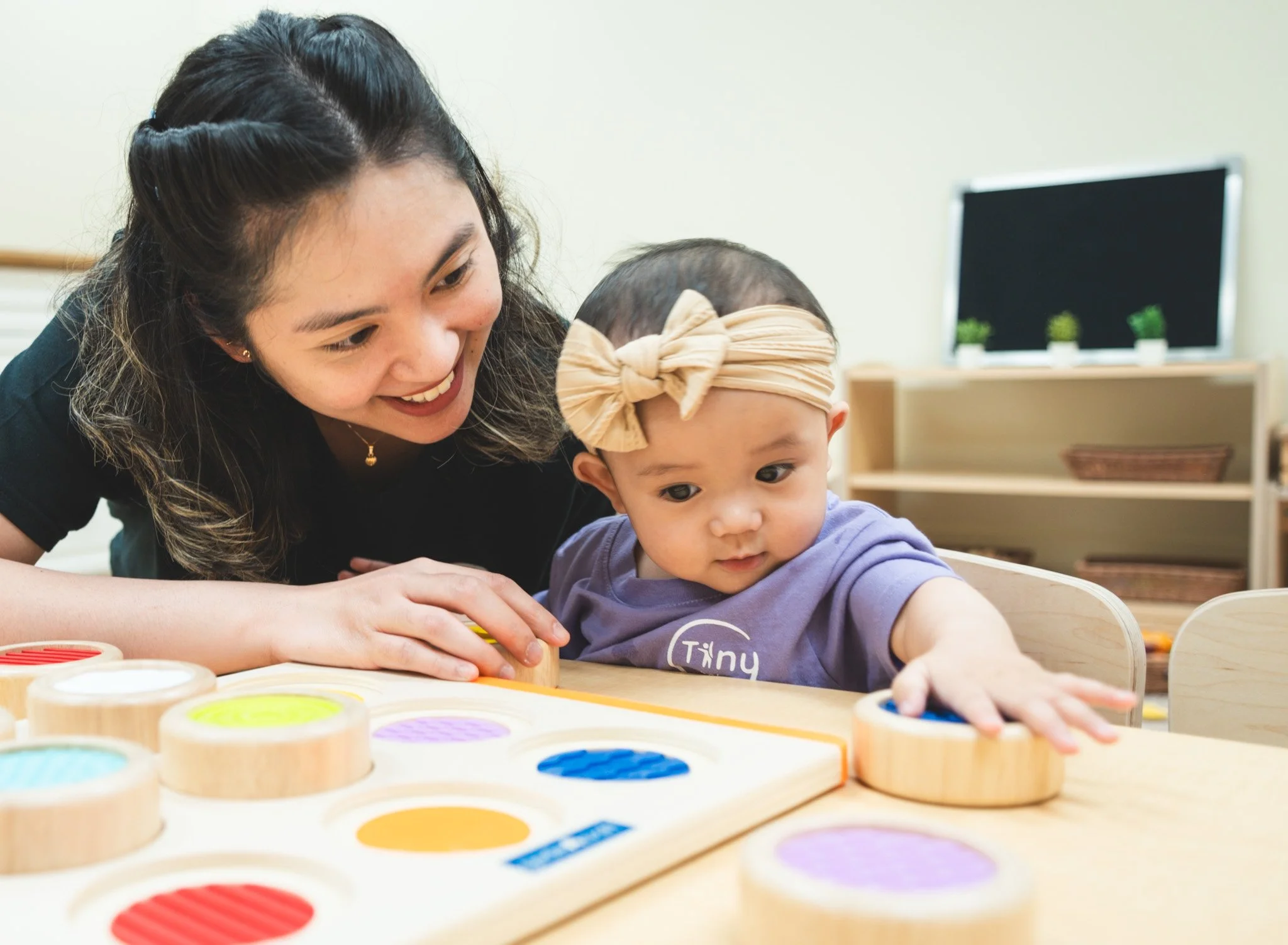Play-Based Learning — More Than Just Fun
What if play was the most important work your child could do?
When most adults think of learning, they imagine pencils, worksheets, flashcards, or sitting quietly at a desk. But for young children, learning doesn’t look like that—not naturally. For them, learning looks like play.
At Tiny Scholars, play isn’t a break from learning. It is learning. It’s how children explore, question, communicate, solve problems, test limits, and understand their place in the world.
That’s why Tiny Scholars is built on a play-based philosophy: a research-informed, heart-centred approach that respects children as active participants in their own growth and development.
1. What Is Play-Based Learning?
Play-based learning is an approach to early childhood education that uses open-ended play as the primary mode of learning. It’s not chaotic or unstructured—it’s intentional, educator-supported, and guided by developmental goals.
In a play-based environment, children are invited to:
Pretend, imagine, and role-play
Build and tinker with real-world materials
Move, climb, and explore the physical space
Engage in sensory experiences like sand, water, and natural textures
Ask questions, create hypotheses, and try again when things don’t go to plan
🧡 Educators observe and interact carefully—not directing the play, but extending it, adding new vocabulary, encouraging reflection, and fostering deeper understanding.
2. What Do Children Actually Learn Through Play?
It might look like fun (and it is!), but underneath every play activity is a rich web of learning.
Here’s what children are developing through play:
| Type of Play | What They Learn |
|---|---|
| Pretend play (e.g., kitchen, doctor’s office) | Language, empathy, emotional regulation, storytelling |
| Block building or construction | Problem-solving, spatial reasoning, early math |
| Outdoor and physical play | Gross motor skills, risk assessment, confidence |
| Group play | Turn-taking, negotiation, leadership, friendship |
| Sensory play (e.g., water, sand, dough) | Scientific thinking, focus, calming self-regulation |
At Tiny Scholars, our educators design learning environments that encourage every type of play—intellectual, physical, emotional, and social—because all are essential to whole-child development.
3. The Science Behind Play
Play isn’t just good for children—it’s biologically necessary. Decades of research in neuroscience and child psychology confirm that play:
Builds stronger brain architecture
Enhances memory and attention span
Reduces stress and anxiety
Strengthens executive functioning (the brain’s self-control system)
Lays the foundation for lifelong social and emotional skills
According to the Canadian Paediatric Society:
““Play contributes to the cognitive, physical, social, and emotional well-being of children and youth. It offers an ideal opportunity for parents to engage fully with their children.””
Tiny Scholars translates this research into daily practice—creating a calm, open-ended environment where learning unfolds naturally, not forcefully.
4. Why Play-Based Learning Works Best in Full-Time Daycare
Learning through play isn’t something that can be rushed or boxed into 30-minute intervals. It needs time and space to unfold organically.
At Tiny Scholars, full-time care allows children to engage deeply, revisit their ideas across multiple days, and build long-term projects. One week they might be pretending to run a café; the next week, they’re writing menus, building a kitchen, and learning about money.
This child-led continuity builds confidence, persistence, and creativity—all without them even realizing they’re “learning.”
5. How Our Educators Guide Play Thoughtfully
A common misunderstanding is that play-based education means children are left to their own devices. At Tiny Scholars, nothing could be further from the truth.
Our educators are highly trained in observing developmental cues and shaping the environment accordingly. Through the Heart-to-Heart programme, they build trusting relationships that help them:
Know when to introduce a new material
Ask the right question to deepen thought
Recognise teachable moments in everyday play
Guide children through conflicts and self-expression
This balance of freedom and guidance helps children grow both independently and relationally.
You’ll never be in the dark about your child’s day or development. We see you as co-educators in your child’s journey.
6. Play-Based Learning Is an Investment in Who Your Child Becomes
It’s easy to feel pressured by checklists—letters, numbers, fine motor skills. But true education isn’t about racing ahead. It’s about building a foundation strong enough to support lifelong learning.
Through play, children develop:
Resilience to try again when something fails
Empathy to consider others’ perspectives
Critical thinking to solve problems creatively
Confidence to lead, speak up, and explore
Joy in the process of learning itself
At Tiny Scholars, these are not add-ons. They are core outcomes of our curriculum.
🧠 Your Child’s Brain Doesn’t Need More Pressure—It Needs More Play
If your child comes home muddy, giggling, and full of questions, it means their day was rich with learning.
We don’t just allow play at Tiny Scholars—we protect it, value it, and intentionally craft it to support development.
Choosing a childcare centre is more than a logistical decision—it’s a values-based one.
At Tiny Scholars, we combine the highest standards of safety, certification, and curriculum with an unwavering belief in the dignity and potential of every child. If you’re seeking a place where your child will be known, nurtured, and inspired to grow in mind and heart, we invite you to explore our centre.
📍 Located in the heart of Amenida Seniors Community in Surrey, our intergenerational setting brings together young children and elders in a vibrant, life-giving environment.
🎈 Curious to See Play-Based Learning in Action?
📞 Contact Tiny Scholars to speak with a team member about how our approach prepares your child not just for school, but for life.
Book a Tour Today or Contact Tiny Scholars to learn more about our unique approach and community.







